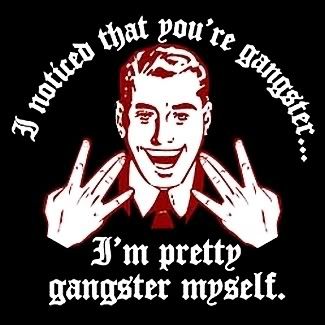Post by Jay on Jan 1, 2008 1:21:16 GMT 10
name: Russkaya Mafiya, Bratva, Red Mafia, Krasnaya Mafiya, Russian Mob
facts-
-name given to various ethinticity which appeared in the former Soviet Union
-Russian Mob's own members have been known to Organizatsiya, or "The Organization."
Russian Organizations-
The Solnetsevskaya bratva
Dolgoprudneskaya
The Izmailovskaya gang
Thhe Tambov Gang
Obshinia or Chechen Mafia
Potato Bag Gang
Orekhovaskaya Gang
Mafia Personalities-
-Evse Agron(Brooklyn based crime boss; murdered, 1985.
-Marat Balagula(Brookyln-based crime boss and originatior of billion dollar gasoline bootlegging scam; released from American prison, 2004.
-Arbi Barayev(Chechen warlord/crime boss; killed by Russian armed forces 2001.)
-Viktor Bout(Arms merchant; international fugitive.)
-Yuri Brokhin(Famed expatriate Russian dissident/international drug dealer and jewel thief; murdered, 1982.
-Konstantin Dimitrov-Samokovestsa(Bulgarian drug kingpin; murdered 2003.)
-Vitali Dyomachka(Russian mobster who produced a TV series chronicling his own activities.)
-Monya Elson(Profilic professional killer; convicted of three murders and imprisoned.)
-Ludwig "Tarzan" Fainberg (Southern Florida crime boss; deported to Israel.)
-Georgi Iliev (Second boss of Bulgarian VIS crime group; murdered 2005.)
History-
Despite seeming to arise during the fall of the Soviet Union, organized crime has existed throughout the imperial and communist eras as a form of open rebellion against the systems in the form of the Thief's World. During this time organized crime was fiercely honor based and often attacked and killed traitors among their ranks. During World War II, many enlisted in the Russian army resulting in the Suka Wars which killed many of the thieves who were branded as government allies as well as the original thief underworld during Stalin's reign. These criminals, seeking a new survival strategy, began to ally with the elite in the Soviet Union as means of survival, creating the powerful Russian black Market.
The real breakthrough for criminal organizations occurred during the economic disaster and mass emigration of the 1990s that followed the fallof the soviet union. Many former government officials of the Soviet Union turned to crime because they were desperate for money. Others joined large numbers of Soviet citizens who moved overseas primarily to the United States and the Mafia became a natural extension of this trend. According to official estimates, some 100,000 Russians are committed mobsters, with a large but unknown engaging in these criminal practices on and off.
Via their large communities throughout the West and in particular the United States, since the mid-90s the crime groups have been trying to expand their criminal empire into America. Most often via the trafficking of drugs, illegal weapons and prostitution. This lead to some brutal gang wars with the organizations that already existed in America. Including the Italian Mafia and Chinese Triads.
Russian organized crime figures from other countries are often sent to America to perform a service such as gangland murder or extortion.
Each boss called a "pakhan" controls four criminal cells through an intermediary called "bigradier." The boss employs two spies that watch over the action of the brigadier to ensure loyalty and that he does not get too powerful. A cell is the structure in which the Russian Mob operates.
The Thieves Code-
A thief is bound by the code to
1. Forsake his relatives--mother, father, brothers, sisters, etc.
2. Not have a family of his own-- no wife, no children;this doe not however preclude him from having a lover.
3. Never, under any circumstances work, no matter how much difficulty this brings-, love only on means gleaned from theivery.
4. Help other thieves--both by moral and material support, utilizing the commune of thieves.
5. Keep secret information about the whereabouts of accomplices(i.e. dens, districts, hideouts, safe apartments, etc).
6. In unavoidable situations(If a thief is under investigation) to take the blame for someone else's crime; this buys the other person time of freedom.
7. Demand a convoctation of inquiry for the purpose of resolving disputes in the event of a conflict between oneself and other thieves, or between thieves.
8. If necessary, participate in such inquiries.
9. Carry out the punishment of the offending thief as decided by the convocation.
10. Not resist carrying out the decision of punishing the offending thief who is found guilyu, with punishment determined by the convocation.
11. Have good command of the the thieves'jargon("Fehnay")
12. Not gamble without being able to cover losses.
13. Teach the trade to young beginners.
14. Have, if possible, informants from the rank and file of thieves.
15. Not lose your reasoning ability when using alcohol.
16. Have nothing to do with the authorities (particularly with the ITU[Correctional Labor Authority], not participate in public activities, nor join any community organizations.
17. Not take weapons from the hands of authorities; not serve in the military.
18. Make good on promises given to other thieves.


 Imma gonna smacka you
Imma gonna smacka you
